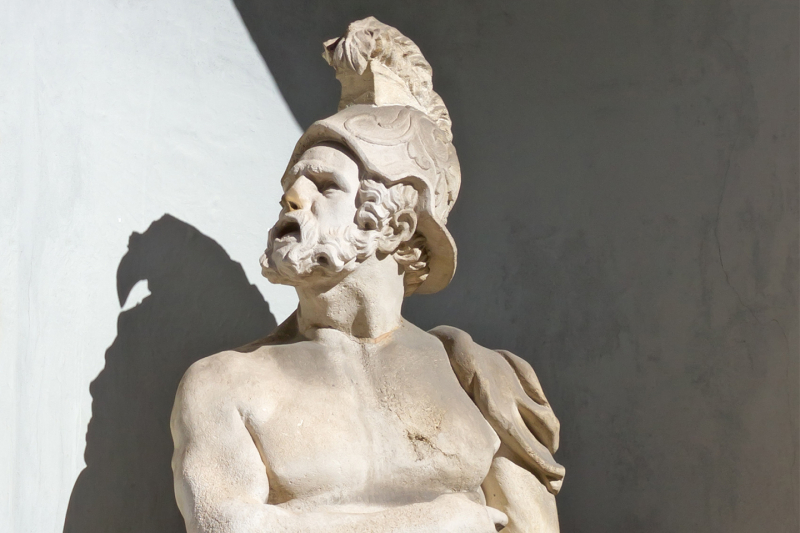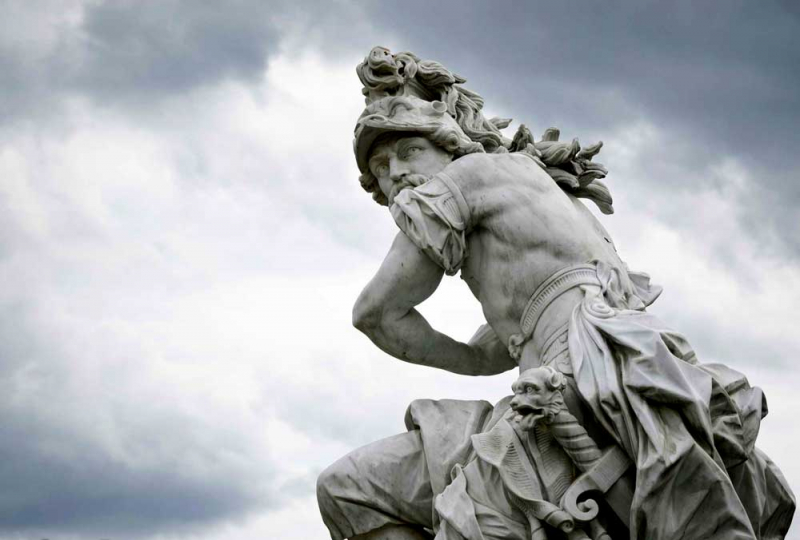Mars
Mars was the god of war and also an agricultural guardian in ancient Roman religion and myth, a combination that was common in early Rome. He was the son of Jupiter and Juno, and he was the most powerful of the Roman army's military gods. The majority of his festivals were held in March, the month named after him (Latin Martius), and in October, which began the military campaigning season and finished the crop season.
Mars was connected with the Greek god Ares, whose myths were recast in Roman literature and art under the name of Mars, due to the influence of Greek culture. Mars' character and dignity differed significantly from that of his Greek equivalent, which is frequently addressed with scorn and repulsion in Greek literature. Numa, the peace-loving semi-legendary second king of Rome, is said to have erected Mars' shrine in Campus Martius, the area of Rome that bears his name; during Republican times, it was a focal point of electoral activities. Augustus transferred the focus of Mars' cult to within the pomerium (Rome's ritual boundaries), and as a prominent religious feature of his new forum, he built a temple to Mars Ultor.
Unlike Ares, who was considered largely a destructive and disruptive force, Mars symbolized military might as a means of securing peace and was the Roman people's father (pater). Mars fathered Romulus and Remus through his rape of Rhea Silvia, according to Rome's mythological ancestry and origin. Venus was the divine mother of the hero Aeneas, remembered as the Trojan refugee who "founded" Rome several centuries before Romulus built out the city walls.












